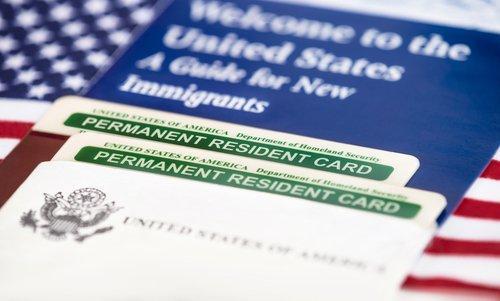Family Petitions for Permanent Residency
 For immigrants to the United States, determining the best and fastest way to bring your family members to this country can be a frustrating and complicated process. According to the website for U.S. Citizenship and Immigration Services (USCIS) and the Department of Homeland Security, the type of family petition you file and the manner in which you file it can vary greatly depending on your own status as a permanent resident or citizen in the United States. In addition, the age and status of the family member you wish to bring to the U.S. can make an impact on the type of family petition you will need to file. In short, family petitions for permanent residency (or, in other words, to become a green card holder) are extremely complex.
For immigrants to the United States, determining the best and fastest way to bring your family members to this country can be a frustrating and complicated process. According to the website for U.S. Citizenship and Immigration Services (USCIS) and the Department of Homeland Security, the type of family petition you file and the manner in which you file it can vary greatly depending on your own status as a permanent resident or citizen in the United States. In addition, the age and status of the family member you wish to bring to the U.S. can make an impact on the type of family petition you will need to file. In short, family petitions for permanent residency (or, in other words, to become a green card holder) are extremely complex.
At Farooqi & Husain Law Office, we have years of experience helping members of the Muslim community to file family petitions for permanent residency and can discuss your options with you.
Petitioning for Family Members to Become Permanent Residents
As the USCIS website explains, immigration laws in the U.S. currently permit green card holders “to petition for certain eligible relatives to come and live permanently in the United States.” Who is eligible? A current U.S. permanent resident can petition for the following persons to come live in this country:
- Current spouse;
- Unmarried child or children or any age; and
- Other relatives under certain circumstances.
If you are trying to bring a relative other than a current spouse or an unmarried child to the U.S., you will need to determine whether that person qualifies as an “eligible relative,” in which case that person would be placed into a “family preference category.” Typically, there is a waiting period each year for this type of visa.
Different Types of Visas for Relatives
Even for a spouse or an unmarried child, the family petition for permanent residency can vary based on a number of factors. In particular, if you are petitioning for an unmarried child, the child’s age may become an important factor. To be sure, the type of visa category that you will be looking at will change if your unmarried child is aged 21 or older. According to a blog post from the U.S. Department of State, if you are petitioning for a spouse or an unmarried minor child (under age 21), then you will need to look to an F2A visa. For unmarried children aged 21 and older, the visa category becomes an F2B visa.
What is the difference between an F2A and F2B visa? In practical terms, the time period for processing an F2A visa is substantially shorter than the processing time for an F2B visa. Once you determine a family member’s eligibility, to begin the petition process you must file a Petition for Alien Relative (Form I-130) on behalf of your relative and wait for your priority date to become current.
The dedicated immigration attorneys at our law firm understand how vexing this process can be, especially when you are living in the U.S. without your spouse or your children to offer a system of support. It is important to seek assistance from a dedicated Oakbrook Terrace immigration lawyer. Contact Farooqi & Husain Law Office today to learn more about the services we offer to members of the Muslim community.
Sources:
https://www.uscis.gov/green-card/green-card-through-family/green-card-family-member-permanent-resident
http://blogs.usembassy.gov/philippines/f2a-to-f2b-conversion-iv/


 630-909-9114
630-909-9114




